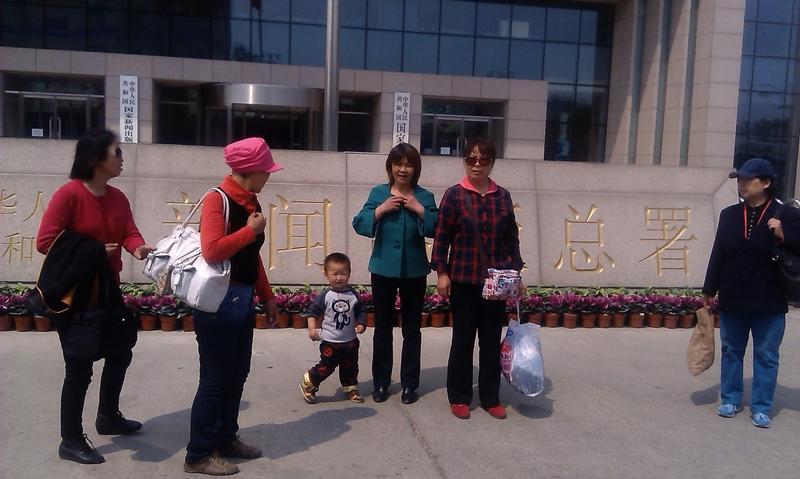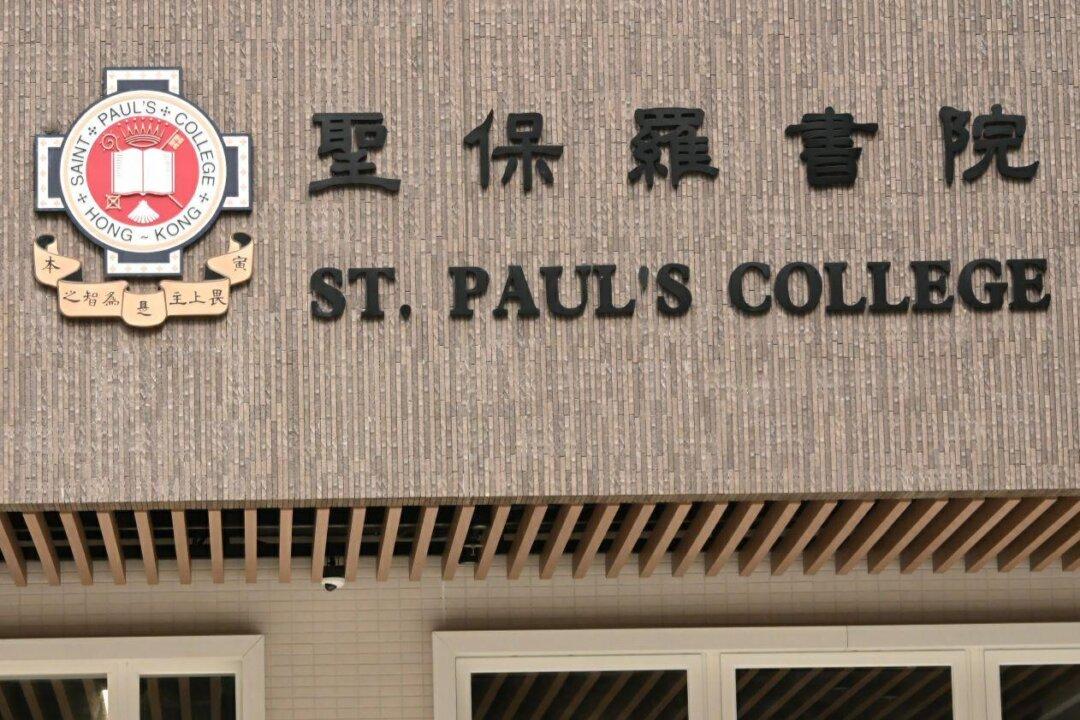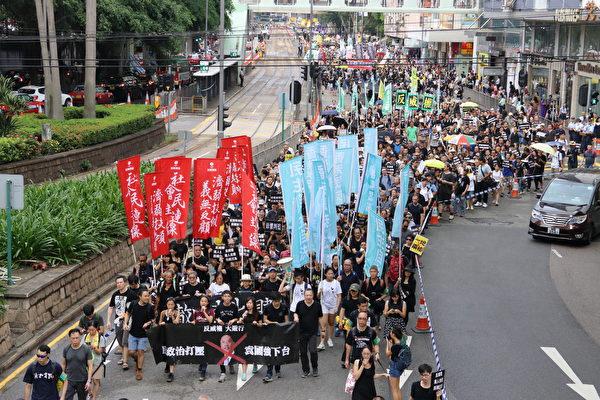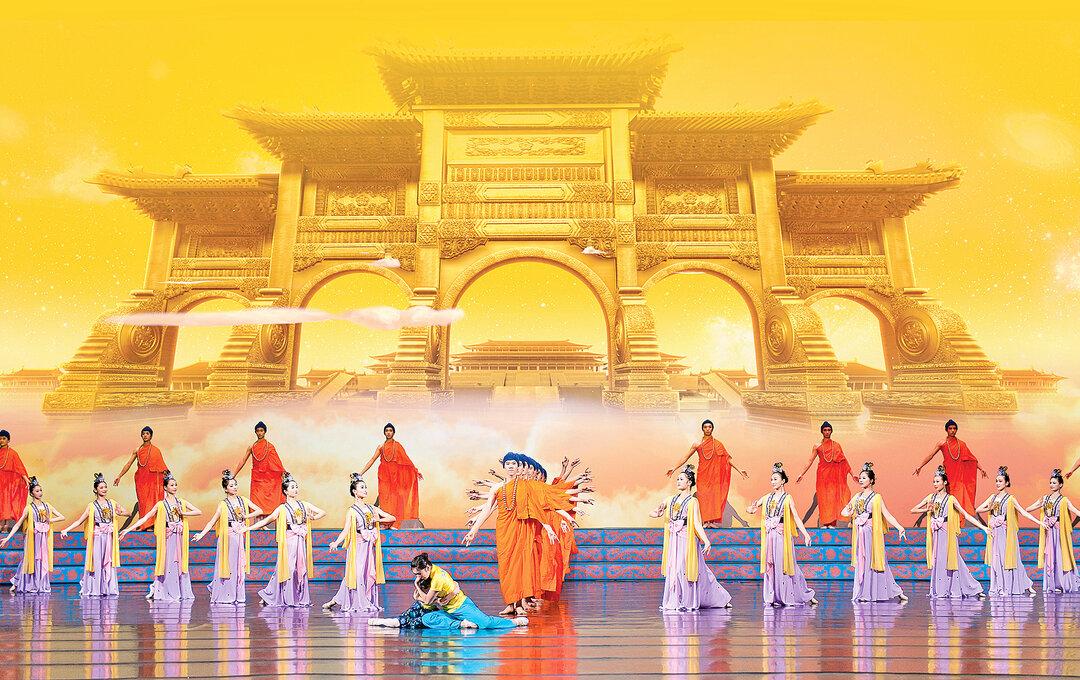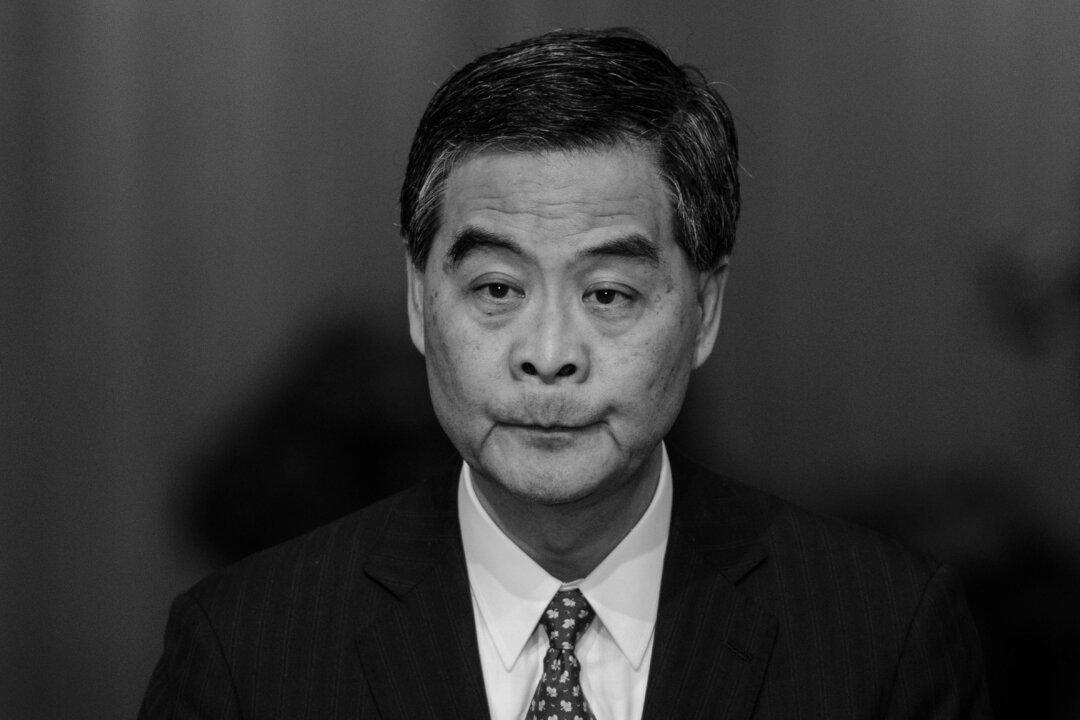A group of torture survivors went to the General Administration of Press and Publication (GAPP) on May 3 to protest the Chinese Communist Party (CCP) denial of torture in Masanjia Forced Labor Camp in Liaoning Province. They previously protested what they called a falsified investigation report released by Liaoning officials, at two offices of state media Xinhua in Beijing, but got no response.
GAPP staff did not allow them to enter. The protesters waited a full day. A staff member told them GAPP is not responsible for Xinhua’s news and asked them to visit the State Bureau for Letters and Calls, the office that handles complaints. One protester said when she went to Xinhua on April 27 and April 28, a staff member there told her all news is approved by GAPP, “yet GAPP staff told us that GAPP no longer exists.” Beijing-based GAPP is responsible for distributing news, licensing news agencies and publishers, and drafting policies about news and publishing.
Hao Wei, a Masanjia victim, said, “We were all hurt in Masanjia. The women guards in there are worse than criminals. We came all the way here from Liaoning. We want to tell the authorities what we have witnessed. The guards savagely assaulted our bodies. Some of us still carry wounds from four years ago.”
Hao was detained in Masanjia for one year. She appealed to authorities about her house on Jan. 9, 2012, and was detained at Dalian Detention Center as a result. With no legal charges, trial or sentence, she was sent to Masanjia Women’s Forced Labor Camp in Shenyang on Feb. 2. She said pregnant women, women in their 60s, and people with disabilities were forced to do heavy labor. She had to work over 10 hours per day and was only allowed to rest for two days out of several months. In the labor camp, she saw some Falun Gong practitioners in a separate group. The practitioners wore black and white prison uniforms and were separated from the others for work and meals.
Hao said that since the Liaoning authorities published its report denying torture in Masanjia, authorities have harassed many Masanjia victims. “Some received threatening phone calls, some were asked to go back to Masanjia to complete some procedures. That’s scary! Once they get their hands on you, it’s hard to say if they would restrict your freedom or ask you to write something. Every one of us here had to write how good it was in here (Masanjia Labor Camp) one month before our release.”
Hao hopes what she described as the terror in Masanjia can be exposed to the world. “We certainly hope the whole world will pay attention to this, and let Masanjia be closed soon. That place abuses and destroys women.”
The Chinese Lens magazine which published the article titled “Out of Masanjia” made a statement on its official microblog on May 5 that its May issue will be delayed for a week. The article drew attention in China and internationally to the Chinese regime’s severe violations of human rights in Masanjia Forced Labor Camp.
The official statement on the microblog did not give a reason for the delay. According to BBC Chinese, a reporter with the financial magazine Caijing, an affiliate of Lens, said that the issue was canceled due to the article it published about the camp.
On April 19, Liaoning Province authorities stated that the facts in Out of Masanjia were “severely twisted.”
Author of Out of Masanjia Yuan Ling defended himself online, inviting Liaoning authorities to see him in court. He wrote that he would provide evidence to back up his article. He also called for the torturers and responsible official to be punished.
Read the Chinese article.
Translated by Quincy Yu. Written in English by Mary Silver.
